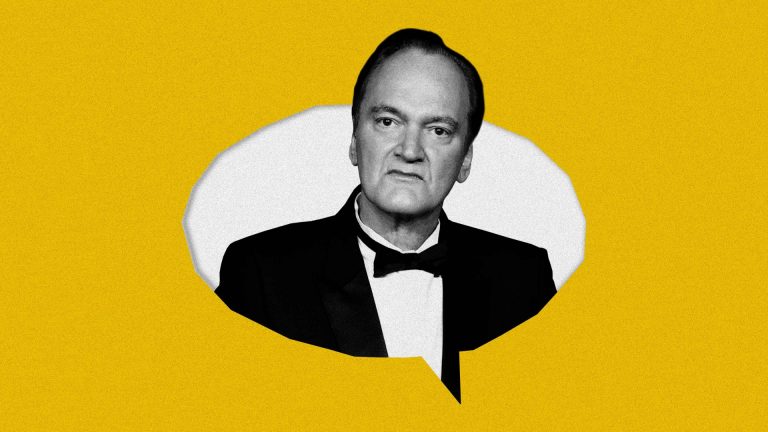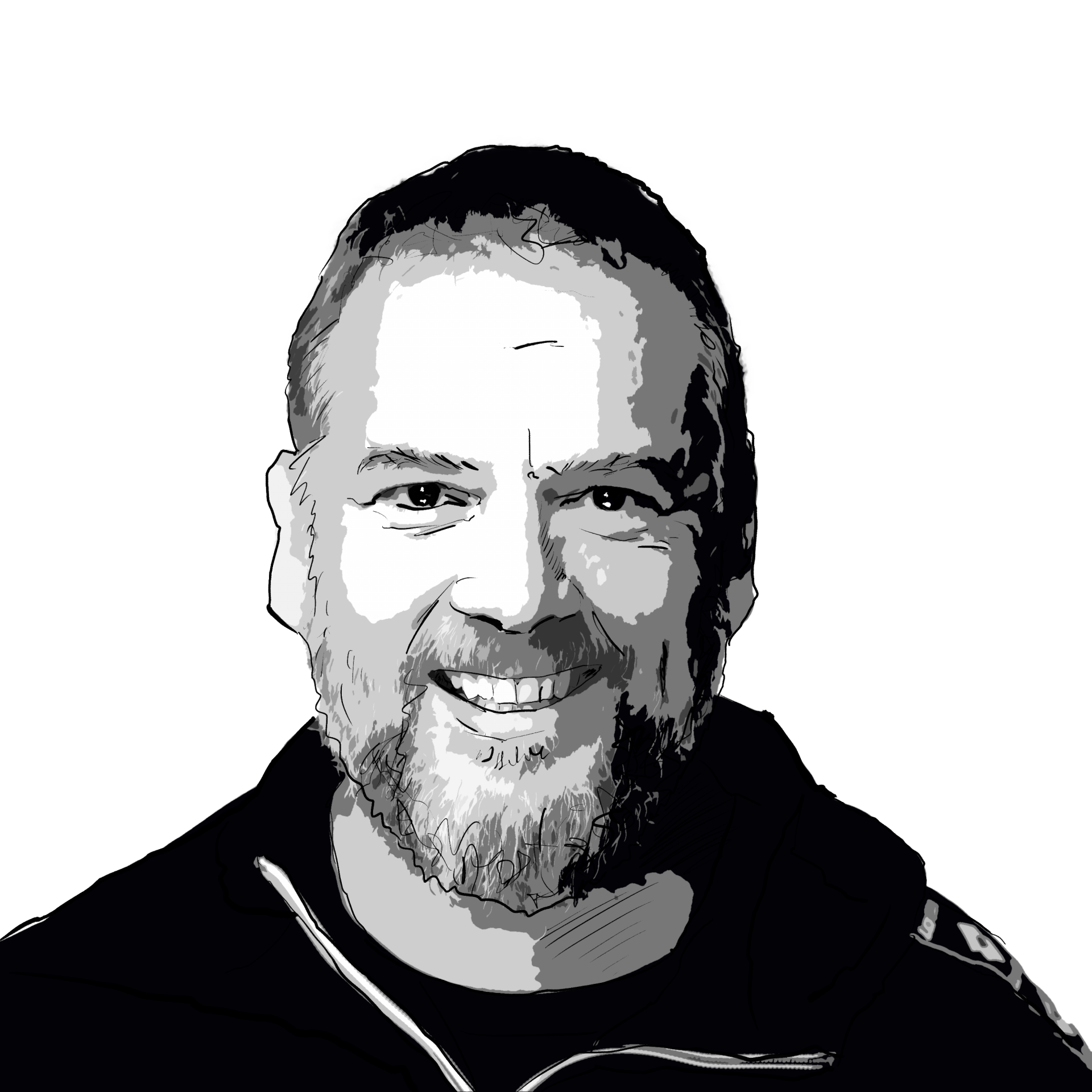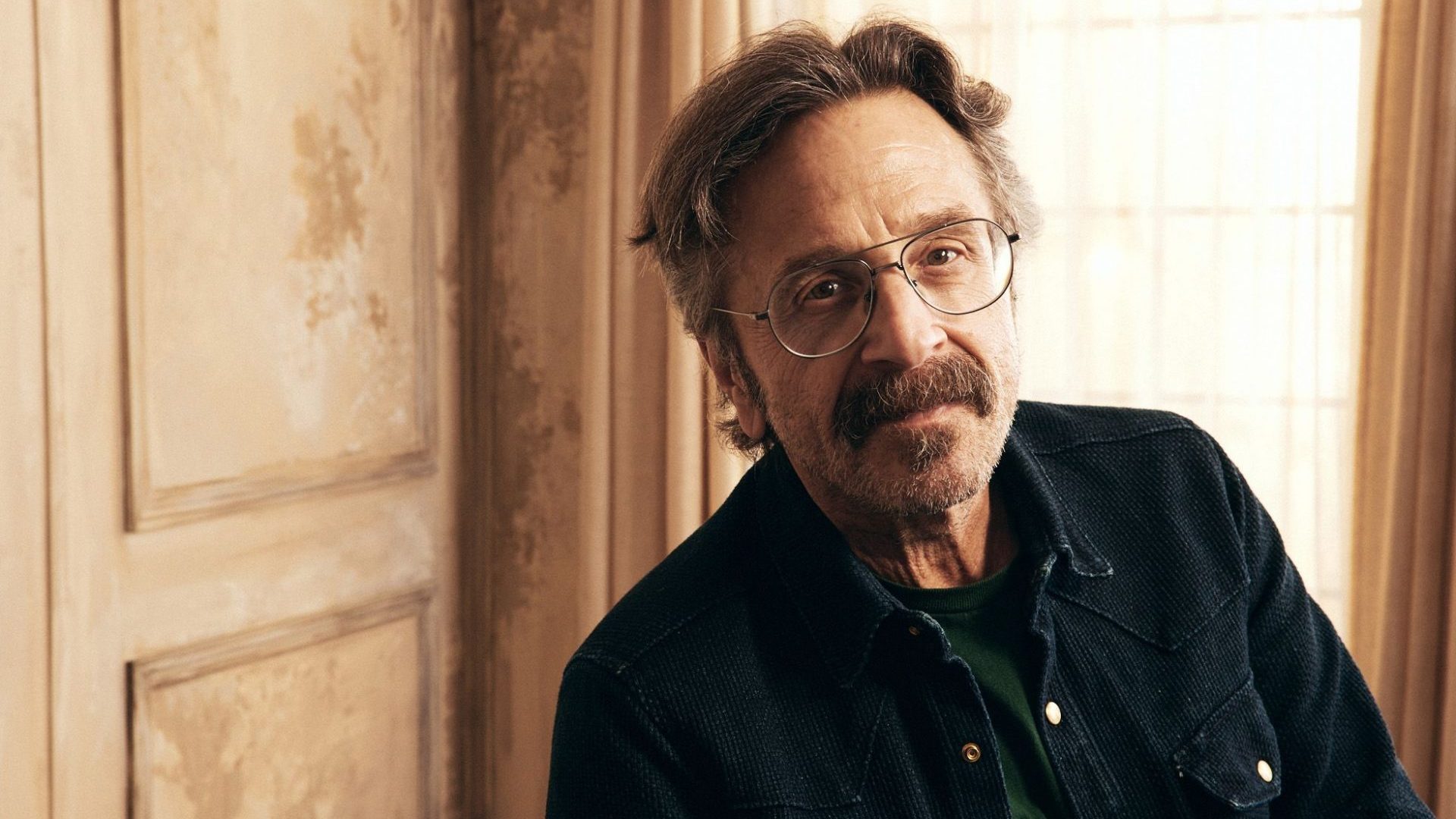Marc Maron is talking to the playwright and actor Tracy Letts. “I’m a little tired of talking, in a way,” he says. “I’m a little tired of digging parts of myself out, which is what I do in order to share and relate.”
Maron has every right to be tired. For 16 years, he has hosted two episodes a week of his podcast WTF, an acronym that stands for “Why the face?” (Sorry, an old Modern Family joke.)
In those 16 years, and in part because of the success of WTF, podcasts have become big business. The irony, of course, is that the comedians who are now mining the seam that Maron first discovered are ones he seems to despise, both politically and comedically.
His beef is specifically related to the (sigh) “anti-woke” brigade. Maron has gone after the likes of Joe Rogan and Dave Chappelle as “hacks”, and our very own Ricky Gervais as “boring.” All are comedians who, he says, “speak power to truth.”
“Whatever they represented in terms of policy, they won,” Maron told the Bad Friends podcast recently. “Trans people are frightened. They have no ability to get healthcare anymore. They’re afraid of being alive and have no freedom left. That’s done. So when do you stop with the jokes?”
In his recent streaming special Panicked, he brings up a slur that’s used far more often in the US than the UK. Maron says that many of his fellow comics who voted for Trump were single-issue voters. Rather than being actual free speech champions, “they just wanted to say the R-word with impunity.”
Notably, many of those supposed free-speech warriors have been silent on the cancellation or suspension of chat show hosts Stephen Colbert and Jimmy Kimmel.
Some might argue that Maron is simply jealous – despite the success of his podcast and appearances in TV shows like Glow and Easy, his long comedy career never got near superstardom. It’s an argument he himself voices in new documentary Are We Good? “I just couldn’t draw [a crowd], no matter how many times I did Conan,” he says.
Still gigging regularly, we see him backstage fuming at a warm-up act which is warming the audience up too much. Interviews with his peers John Mulaney and David Cross reveal a man who is respected and slightly feared as someone who holds everyone (including himself) to impossibly high standards.
The documentary was finished before Maron announced his retirement, and the day after he did, I spoke with the film’s producer Julie Seabaugh, a longtime chronicler of the west coast comedy scene. “I’ve got a lot of texts, and I’m going to have to answer them after this interview,” she told me.
Suggested Reading


When will Quentin Tarantino shut the f*** up?
The documentary charts Maron’s dysfunctional family upbringing in New Mexico, a flirtation with standup that was derailed by drug abuse, recovery, good to bad relationships, more comedy, more substances and finally sobriety and the podcast. If the story had finished there, it would have been an unexceptional tale of American success. But during the pandemic, Maron’s partner, the director Lynn Shelton, died of undiagnosed leukaemia.
“Marc had very visibly found a level of happiness that had escaped him in previous years,” Seabaugh says. “You know: ‘This is it. This is my life. I can be happy now’, and then it’s suddenly gone. So his Instagram lives, you know, were just heartbreaking but beautiful. I realised the next material he was going to do was going to be the best of his career, even though he kept threatening to quit comedy.”
When lockdown lifted, Seabaugh and director Stephen Feinartz set about documenting Maron’s life, his grief and his preparation for a special. We see him with his cats, packing and unpacking from his constant touring, clearing out his stuff. He’s a curmudgeon who’s always rubbing his face, muttering about something, and whose trousers have a disturbing habit of creeping down to reveal bumcrack.
“There’s an overarching theme of how he really doesn’t feel he’s that successful. He sees other people as having passed him and having a lot more influence,” Seabaugh says. “But I wanted to do this documentary because that’s the opposite of how I saw him.”
Maron’s own anxiety about his position is contradicted by the massive popularity and success of WTF, which attracted stellar guests from music and comedy, and even a sitting US president, Barack Obama. And yet despite the importance of his guests, they are all treated as partners in a conversation. He’ll argue with them, apologise to them – part of his motivation for the podcast was to reconcile with comics he’d fallen out with over the years – and of course joke with them.
At the beginning of each episode, a freewheeling monologue catches the audience up on a kind of audio diary, which is where the intimacy becomes important. Whether it’s his relationship, his cats, his grief, the second election of Trump, his ire at comedy being used to bolster the regime, Maron talks to us like we’re the most important person in the room, the best listener, someone who won’t judge him too severely. This is what Seabaugh sees as the root of her own fascination with Maron.
“As a long-term Marc Maron fan, I have always been fascinated by his ability to really just lay it all out there, pull no punches about anything, even his career and himself, his own shortcomings in his relationships. And he also largely just writes on stage, in the moment. He’ll go up there with a couple of notes, but he kind of works it out, having that interaction with the audience.”
What will come next? “This is Marc Maron. Everything he’s going to do is on his own terms,” she says. “That’s part of why we love him. He’s a very id-driven artist. It does make a lot of sense, because this is a big time of change for him. The end of the documentary sets that up, too.
“So I guess the idea is to mark this era of change in this way. The ending of the podcast is going to be tentatively around the official wide release of the documentary. And more power to him. He does it the way he wants to do it, and we wouldn’t have it any other way.”
Personally, I don’t know if I’m ready to let Marc Maron go. I find myself wanting to shout the first words you hear on every episode of WTF: “Lock the gates!”
Are We Good? opens in US cinemas on October 3 and will be on streaming shortly after
John Bleasdale is a writer, film journalist and novelist based in Italy




